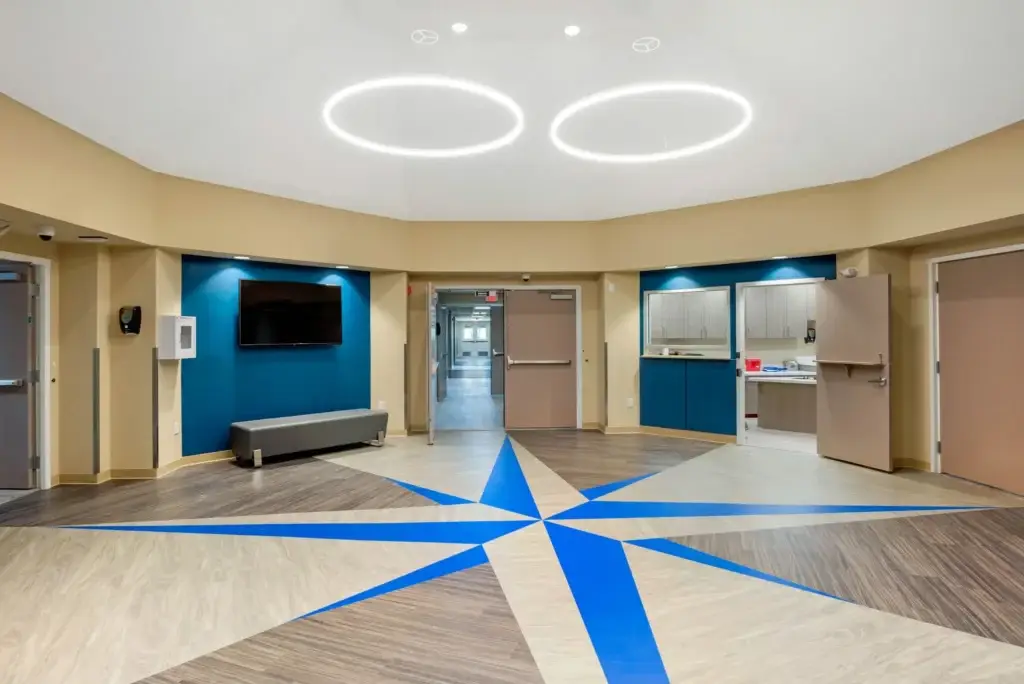Recovery is just a phone call away. We’re here for you 24 hours a day, 7 days a week. Call (561) 340-7269
Recovery is just a phone call away. We’re here for you 24 hours a day, 7 days a week. Call (561) 340-7269
Inpatient rehab offers intensive, life-changing addiction treatment that helps you escape triggering environments and focus on your recovery. It’s time to get your life back.

Our inpatient rehab, also known as residential treatment, offers a highly structured and intensive approach to addiction treatment. Patients are separated from drugs or alcohol by living onsite at our Palm Beach facility and receive evidence-based treatment from our licensed clinicians throughout the day. Inpatient rehab helps you prioritize your recovery and equips you with the essential tools for maintaining sobriety.

If you agree with any of the following statements, inpatient rehab could be a life-changing decision:
If any of these items apply to you, please call us now. A Recovery Advocate is standing by to discuss the right treatment plan for you.
Inpatient rehab empowers you with the tools, awareness and support you need to live a sober happy life.
During your inpatient stay, our addiction experts lead you through a full-time treatment plan that helps you manage your symptoms and explore the underlying causes of your addiction. This comprehensive approach includes addressing co-occurring mental health disorders and may utilize medication-assisted treatment as medically appropriate.
The Recovery Village at Baptist Health is in-network with most national and local insurance providers. We can confirm your insurance coverage or discuss private payment options.
Speak with a Recovery Advocate who can answer your questions and get you started on your recovery journey.
Inpatient rehabilitation, sometimes shortened to inpatient rehab, is a level of drug and alcohol addiction treatment where clients stay at a facility for an extended time to focus on their recovery. Inpatient rehab is often also called residential treatment, as clients stay at a facility for several days or weeks.
Inpatient rehab usually comes after medical detoxification, or detox, and is often followed by step-down programs like a partial hospitalization program or outpatient treatment, which offer less restrictive structure and greater independence as patients regain control over their lives.
In inpatient or residential care, patients learn how to live without the influence or use of drugs and alcohol. To achieve this, they’ll receive intensive medical and psychiatric education and support, participate in daily individual and group therapies, and experience enriching and nurturing physical activities.
How long it takes to complete treatment depends on the person’s behavioral health needs and substance use history. Most patients finish our medical detox and inpatient rehab programs in 20–35 days. While longer inpatient drug and alcohol rehab programs do exist, many insurance plans do not cover extended stays of this nature.
Completing the full treatment plan is strongly encouraged to minimize the risk of relapse and overdose. However, clients have the right to leave rehab at any time, as long as they are not a danger to themselves or others, even against medical advice.
Yes, inpatient addiction treatment has been the starting point for many people’s long-lasting recovery from addiction. While substance use disorders do not have a definitive “cure,” recovery is possible. We gauge the success of inpatient rehabilitation based on several factors, including improvements in patients’ physical and mental health, employment or educational status, relapse time, safety and legal status, and the quality of relationships with their loved ones.
When attending inpatient rehab, it is usually necessary to take a temporary leave from your job. Fortunately, there are laws in place to safeguard employees’ rights and provide protection during their time in inpatient treatment.
Prioritizing your recovery from addiction is crucial for creating a brighter future for you and your children. While there are no guarantees in child custody matters, completing treatment and mitigating the adverse effects of addiction on your life can positively influence your chances of maintaining custody.
Insurance may cover some or all of the inpatient rehab costs. The Recovery Village at Baptist Health can also work with patients without insurance to develop a private pay option.
The cost of inpatient rehab varies. While there are relatively few studies on the costs of inpatient rehab, one 2009 study (which included government-sponsored inpatient programs) showed the average cost of inpatient rehabilitation for drug and alcohol addiction to be $11,000. However, inpatient rehab costs vary widely from facility to facility, ranging from $5,000 to upwards of $60,000.
To find out how much inpatient rehab costs at The Recovery Village Palm Beach at Baptist Health, call one of our representatives. The total cost of rehab for you will depend on several factors, including health insurance coverage. Our representatives can help you get a better idea of how much your rehab stay would cost.
Speak with a Recovery Advocate who can answer your questions and get you started on your recovery journey.

The Recovery Village at Baptist Health offers comprehensive addiction treatment for drug and alcohol addictions and co-occurring mental health conditions. Read more
Medical Disclaimer: The Recovery Village aims to improve the quality of life for people struggling with a substance use or mental health disorder with fact-based content about the nature of behavioral health conditions, treatment options and their related outcomes. We publish material that is researched, cited, edited and reviewed by licensed medical professionals. The information we provide is not intended to be a substitute for professional medical advice, diagnosis or treatment. It should not be used in place of the advice of your physician or other qualified healthcare provider.